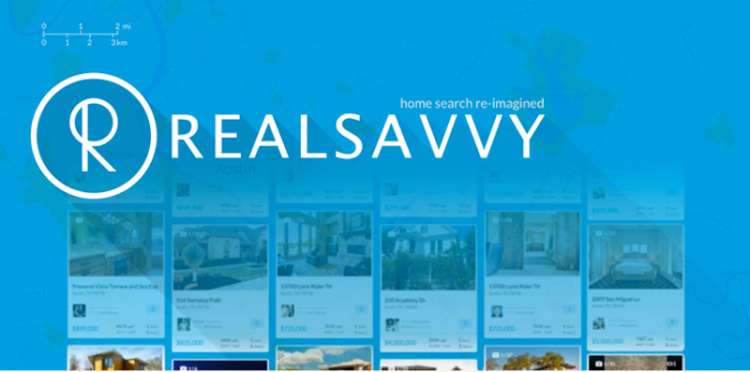Finding a home you’d like to buy isn’t so much a process as it is a pastime for some people — just look at all the cable channels devoted to home buying, renovating, flipping, and more. But for casual buyers just looking to upgrade their living space, searching and sharing online property listings can almost become a part-time job.
RealSavvy says it has a better way to navigate the online process of searching for a new home.
The site is set up sort of like a Pinterest for the real estate world — both in its user interface and in its ability to share. Like with Pinterest, people add links to property listings (manually, or using a browser extension) across the web and can collaborate with others on a collection of houses based on an area, location, or other identifying detail.
The approach should be much easier for couples who only ever scan Trulia/Zillow on lunch breaks, or for people relocating to a new city who need help finding a home from friends in the area.
I think RealSavvy is likely to be a huge hit — based solely on my unscientific observations over the holidays of my mom surfing Pinterest while watching a mini-marathon of House Hunters and Property Brothers.
RealSavvy is particularly useful because it retains the basic information about a property (price, location, size, photos, etc.) listed on sites like Zillow even after the home is taken off the market and the original listing disappears. The service is gathering all that data and organizing it into tidy groups that you can return to for the sake of reference at any time.
“Having spent years as a real estate agent, I’ve always noticed that there’s not much organization when it comes to looking for a house online,” RealSavvy CEO and founder Rick Orr told VentureBeat in an interview. He added that the lack of organization means that a lot of people never really go beyond passively looking for a new home. And when they finally do get very serious about buying, contacting a professional can sometimes be overwhelming by comparison.
I agree with Orr, and have watched eager real estate agents go after new clients in ways that would make a used car salesman shake his or her head in disapproval (e.g., go thumb through property listings next to a rack of free home magazines at a grocery store and wait to be approached with a hearty handshake and a business card). But as much as RealSavvy is helping consumers in the search for a new home, it’ll also help these real estate pros stay in touch with potential buyers without alienating them.
“RealSavvy is great from an agency perspective because it creates a method for keeping them involved with clients without [inundating them with] emails, daily phone calls, and texts,” Orr explained.
The startup’s business model is focused primarily on real estate professionals, with RealSavvy generating revenue by charging agencies a fee. In return, those agencies gain analytics about what people in a particular area are interested in buying as well as an important tool they can offer to their own clients to make the entire process easier. So for instance, if you already have a RealSavvy account, you can just send it to a real estate agent, or an agent can collect/add property listings to create a sense of what a particular client is interested in. Real estate pros also gain access to updated MLS data (a real-time updating database of properties) about those listings, and eventually, a dashboard offering analytics as well as leads for new business/clients.
Orr said RealSavvy is available to all U.S. consumers and is slowly launching support for its real estate agency subscriptions city by city. The first city it’s available in is Austin, Texas, where the startup is based, but Orr revealed that he has plans to expand to other large Texas markets (Dallas, Houston, and San Antonio) as well as bigger cities like San Francisco, Chicago, and New York.




